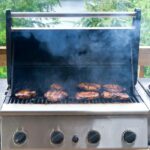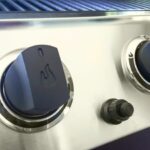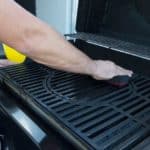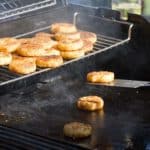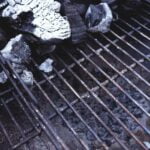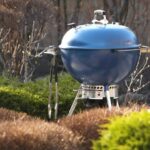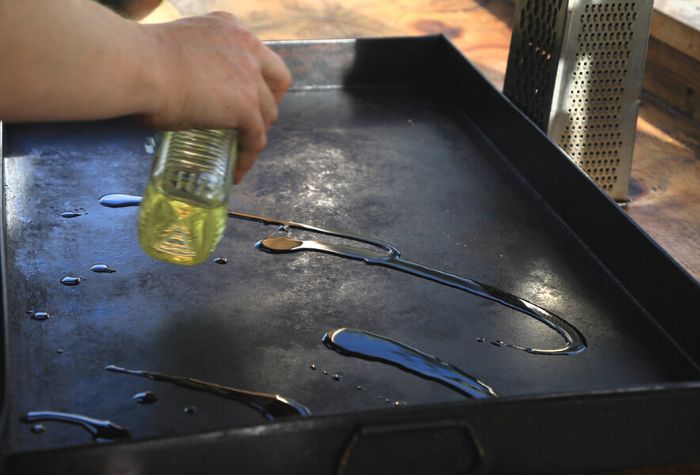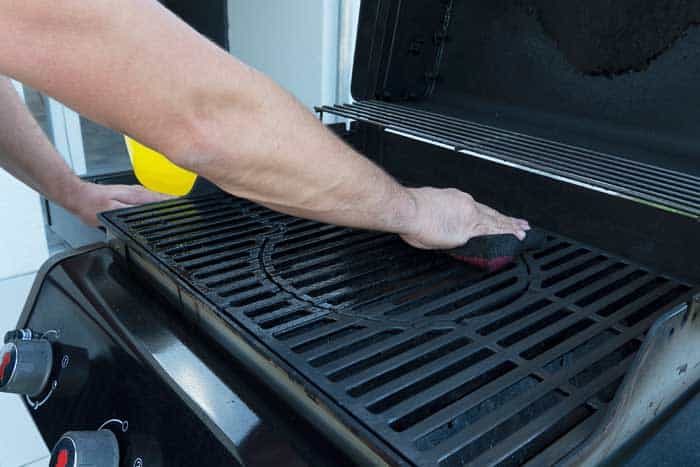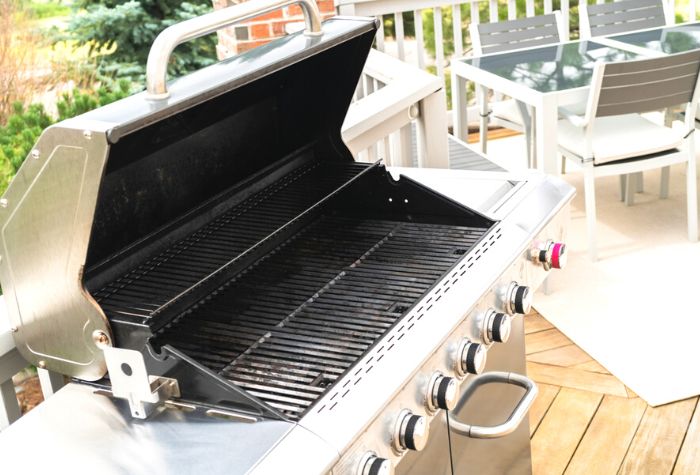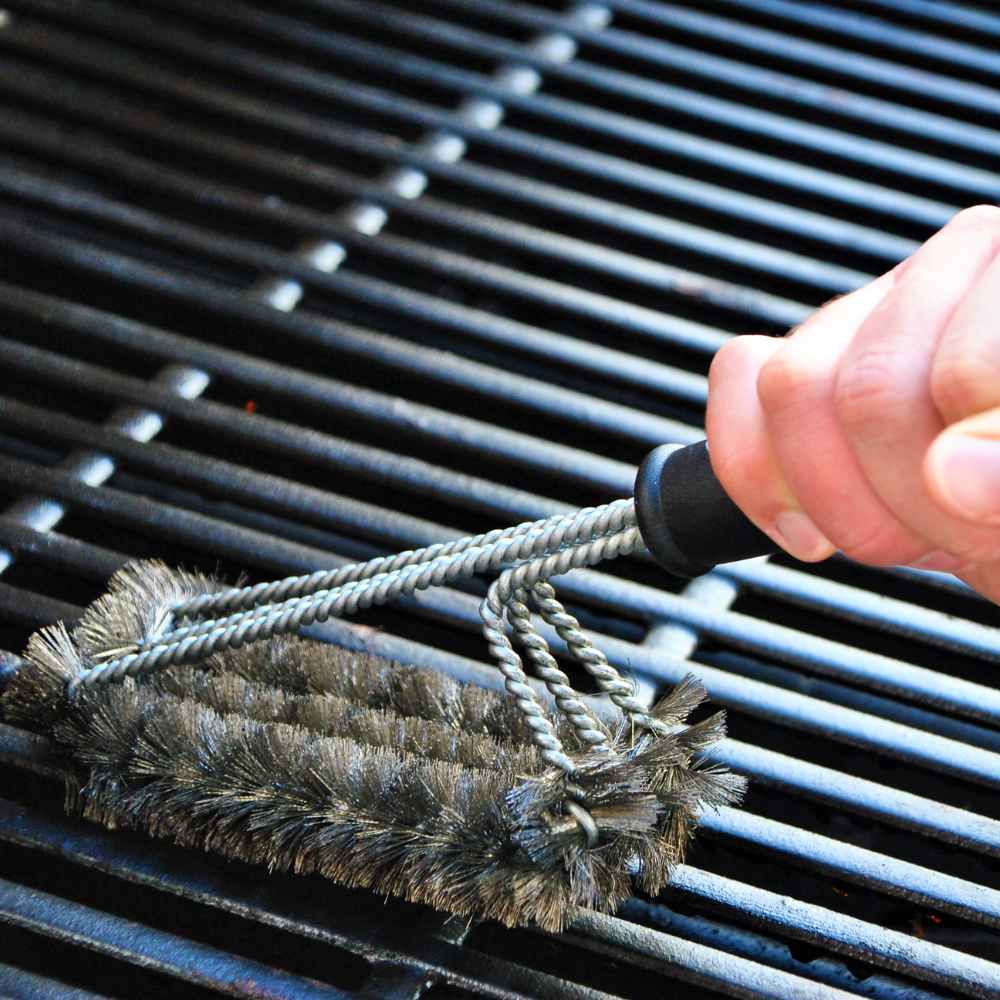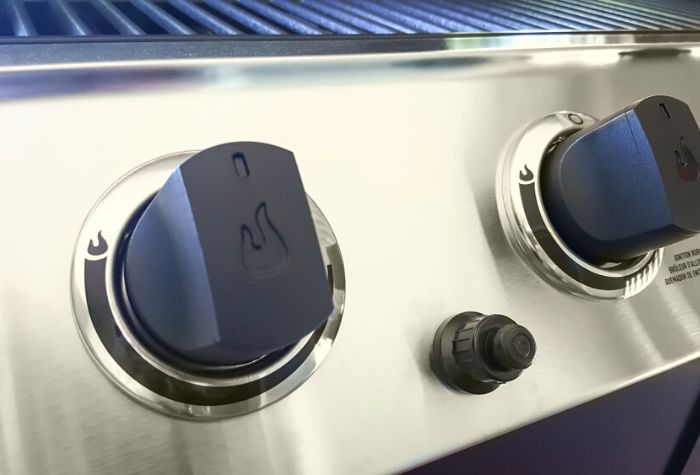Fix your grill’s most common problems with our easy gas grill troubleshooting guide. From low flames to faulty ignition systems, and flare-ups to excessive smoke, discover how to get your propane or natural gas grill running smoothly again.
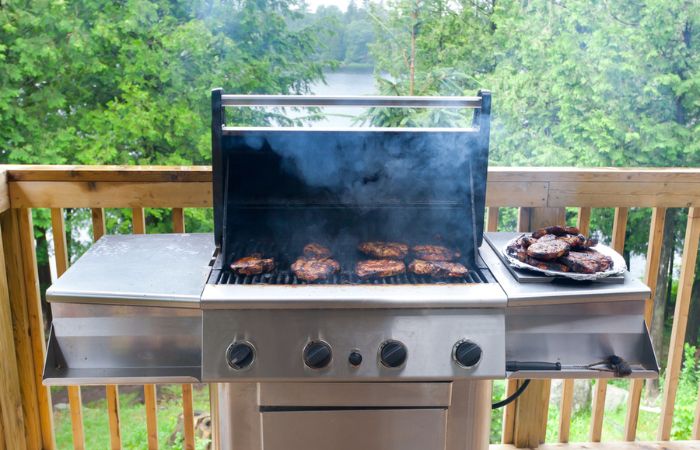
The sun is out and a crowd has gathered, so you break out your gas grill for some backyard cooking. But after continuous use or a long spell in storage, your outdoor grill might not run as smoothly as it should.
From fixing low flame to repairing burners, discover how to diagnose and resolve the most common propane and natural gas grill problems with our easy guide to gas grill troubleshooting.
Safety Disclaimer
Before we get into the specifics of gas grill troubleshooting, an important word on safety.
Before starting any repair work on your grill, turn off the tank valve and disconnect the grill from its propane tank or natural gas source. There should be no gas feeding into the burner or ignition area while you work to resolve any issues with your grill.
After disconnecting, wait 10 minutes for the gas to dissipate, and only carry out repairs in well-ventilated spaces.
Not confident or unsure if this is above your level of ability? It’s best to err on the side of caution and leave it to the professionals by finding a local grill repair specialist.
Let’s get into some of the common problems you will find with a gas grill, what causes them, and how to fix them.
Grill Won’t Light
This is a case of falling at the first hurdle. If your grill won’t light, it’s likely that your grill’s built-in igniter needs fixing or perhaps replacing. If you have a battery ignition, then the battery is the first thing to check. It could be that you need to replace it or repair the wiring.
A piezo igniter generates a spark without a battery. If this is not working, then the most common issue is usually a clog. Clean the igniter thoroughly and try again.
It is possible to replace your igniter if the button has gone faulty or the wiring has broken or corroded. To do this, allow the grill to cool before opening the unit’s igniter box, within which you should find the igniter. Note how the wires are attached before disconnecting them to remove the igniter box. Attach the new ignition kit and ensure all wires are aligned as they were before, also ensuring that each one is aligned correctly with the right burner. Screw the box shut before testing the new ignition system.
The exact igniter part you will need will depend on your grill’s brand and model. Check with your manufacturer’s website to find the exact part you need.
Producing Low Flame or Low Heat
If the flames around your burners are too weak or low, even when turned up, the issue could lie with your grill’s regulator. The most common gas grill regulator problems are sometimes as simple as a loose connection or a crack in the line from the regulator, which is designed to control the flow of gas from the tank into the burners. Check for leaks. Also, check that you have enough gas in your tank.
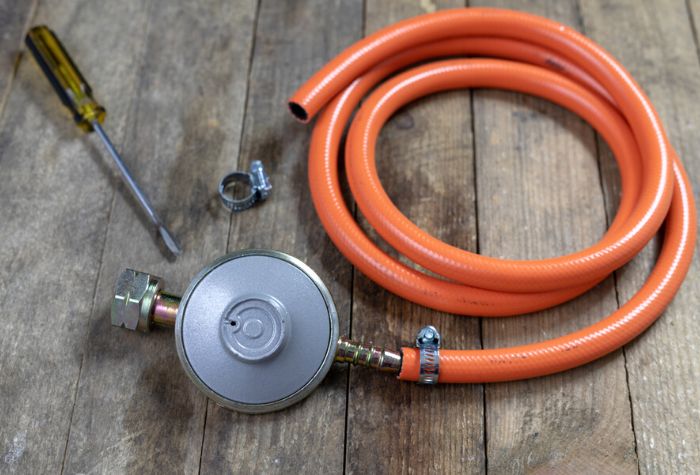
If the regulator is cracked or damaged, you will need to replace it. Replacement regulators are usually single-hosed design, but some are Y-shaped with multiple extensions, traditionally seen with grills featuring side burners. Ensure you get the right regulator for your grill by checking the model on the manufacturer’s website and follow their instructions for installing the new part.
Other causes of your gas grill not getting hot could be that your unit’s ‘Bypass mode’ has been accidentally triggered or that the temperature gauge needs calibrating.
Too Much Heat
If you are experiencing too much heat, it is possible that the opening where the gas is released has a problem.
Check the burner for additional holes, rust, or other issues. Also, check for damage to the regulator. There’s also the potential that you are using the wrong gas supply or the incorrect pressure from the regulator.
Yellow or Orange Flame
Gas grill flames should always burn blue. Yellow or orange flames often indicate low regulator pressure, often caused by an obstruction in the gas line. This can affect heat performance and potentially lead to uneven cooking. Discolored flames could also be a symptom of debris around the grill burners.
Prevention is always better than cure, so to minimize the chances of this happening, clean your gas grill regularly (ideally after each use) in order to keep it in good condition. Also, give it a deep clean every year as grilling season approaches.
If you still see yellow or orange flames from your burners, keep the grill lit and wait a few minutes. If the problem is debris in the regulator or gas line, it may pass after a few minutes of burning.
If the problem persists, shut down the grill and disconnect the propane tank. Wait 10-15 minutes for the grill to cool down completely and for residual gas to pass. Then, check the burners for debris or grease.
Hot Spots
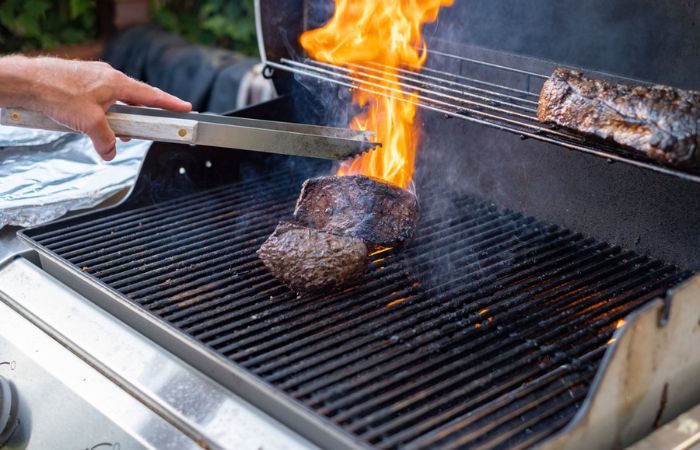
Hot spots are the bane of many a grill fan’s life, but thankfully the issue can be simple to fix.
Like with yellow flames, the most common cause of grill hot spots is blockages in the line or in the burners. Grill burners feature small holes around their perimeter, which release gas evenly, which is then ignited to create a flame. If just one of these small holes has a block, it can cause a significant heat imbalance.
Blockages can range from simple dirt to dead insects, but most commonly this is caused by grease buildup, caused by fatty runoff from meat as it’s grilled on the grates above these.
Make cleaning your grill after each use a priority, using an abrasive wire brush to break down and remove any dirt buildup.
Excessive Smoke
Too much smoke from your grill is a strong indicator of excessive grease buildup. Often a mix of dirt, grim and fatty runoff, grease can build up and pool around the burners between uses. If it builds up enough, the burners will simply burn off this clump of dried grease, leading to smoke billowing out of the grill once it’s fired up.
Excessive smoke could also indicate poor ventilation within the grill chamber. The vents on your grill help keep a steady stream of air through your grill, helping flush out smoke continuously. If these vents aren’t set open enough, smoke will build up within your grill faster than it can escape.
If you see excessive smoke coming from your grill, first check that the vents are open to their maximum setting. If the problem persists, shut down the grill and allow it to cool before checking for grease buildup around the burners.
To prevent excessive smoke, clean your grill burners regularly and consider using a drip pan to collect fatty runoff while you grill.
Grill Smells of Gas
A gas smell can spell danger. Turn the grill off straight away if you smell gas.
You can spray the regulator with a soap and water solution. If there is a gas leak, you will see bubbles in the area. This may be repairable, but that doesn’t mean you should take any risks. Any checks you perform on the gas tank or tubing should be done in a well-ventilated area.
Popping Noises
Popping noises often come from something impeding the gas flow. This could be dead insects or debris from previous uses. Once again, cleanliness is key.
Minor crackling noises aren’t too much of a problem, but loud pops could mean a problem with the gas supply or fluctuations in the flow. If it persists after cleaning, get your grill checked by a professional.
Flare-Ups
Flare-ups are when the grill suddenly generates a lot of flame, usually from just one area or burner. These grill flare-ups occur most often when cooking very fatty meats, as the fat can drip and cause a flare. This can burn the food you are cooking.
The best tip for this is to check that the grill is clean, and brush away any excess grease in between uses. In rare instances, this could also be caused by damage to the burner, which may affect the amount of propane or natural gas feeding through. In this instance, your grill manufacturer should be able to provide replacement parts.
Grease Fires
A grease fire is not something to take risks with. Grease is very flammable, and while small amounts can burn away, large amounts are hazardous.
If a grease fire starts, turn off the grill and starve the grill of oxygen by closing the lid and any grill vents (if it is safe to do so). Use a fire extinguisher and never use water to try and extinguish the fire. Never take any risks with gas or fire.
